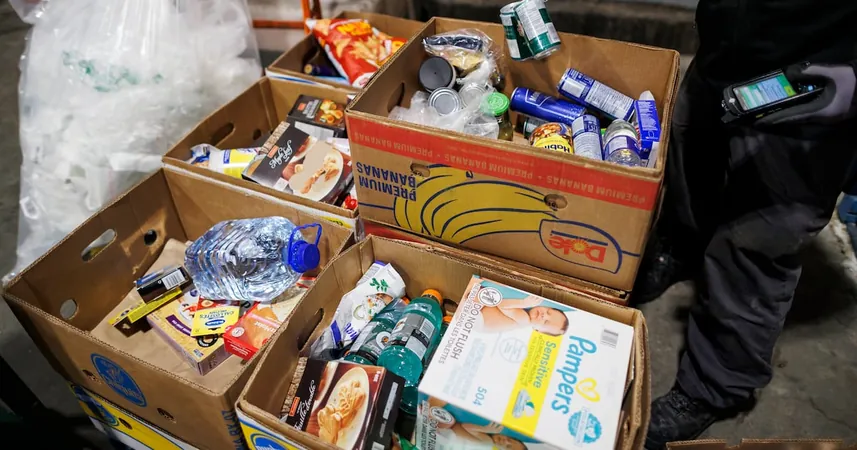
The Alarming Surge of Canadians Relying on Food Banks: A Deep Dive into the Crisis
2025-03-28
Author: Benjamin
In recent years, an increasing number of Canadians have turned to food banks to meet their daily nutritional needs, raising concerns about the country's economic stability and food security. This trend highlights a troubling reality: many Canadians are facing unprecedented challenges in affording basic necessities due to a variety of interconnected factors.
Economic Factors Driving Food Bank Reliance
Economic factors play a significant role in this growing reliance on food banks. The rise of inflation has outpaced wage growth, making it harder for families to make ends meet. As prices soar for everyday items like groceries and housing, many Canadians find themselves caught in a financial squeeze, forcing them to seek assistance from local food banks, which are increasingly in demand.
Impact of the COVID-19 Pandemic
Moreover, the ongoing effects of the COVID-19 pandemic have exacerbated existing inequalities, particularly affecting low-income households and marginalized communities. Job losses and reduced hours during lockdowns pushed many families into precarious financial situations, and the recovery has been slow and uneven.
Rising Housing Costs
Another layer of complexity is added by rising housing costs across the country. Cities like Vancouver and Toronto have some of the highest housing prices in the world, which places additional strain on households. As rent takes up a larger portion of monthly budgets, there’s less remaining for groceries and other essentials.
Changing Perceptions of Food Bank Usage
The stark reality is that food banks are no longer just a resource for the homeless or those experiencing temporary hardships; they have become an integral part of the support system for a growing number of working families and individuals. The stigma surrounding food bank usage is gradually diminishing as more people recognize that it could happen to anyone.
Enhanced Services from Food Banks
In response to the rising demand, food banks across Canada are stepping up efforts to expand their services and outreach. Many organizations are now providing not only food support but also assistance with job placement, financial literacy programs, and access to social services. These holistic approaches aim to address the root causes of food insecurity rather than just treating the symptoms.
The Need for Collective Action
As we look to the future, it's clear that collective action is required to tackle the systemic issues driving Canadians to food banks. Policymakers, community leaders, and citizens must come together to advocate for changes that ensure everyone has access to adequate food, shelter, and opportunity.
Conclusion
The growing reliance on food banks is a reminder of our vulnerabilities and the importance of community support. With each passing day, the need for systemic change becomes increasingly urgent. Are we willing to rise to the challenge?









 Brasil (PT)
Brasil (PT)
 Canada (EN)
Canada (EN)
 Chile (ES)
Chile (ES)
 Česko (CS)
Česko (CS)
 대한민국 (KO)
대한민국 (KO)
 España (ES)
España (ES)
 France (FR)
France (FR)
 Hong Kong (EN)
Hong Kong (EN)
 Italia (IT)
Italia (IT)
 日本 (JA)
日本 (JA)
 Magyarország (HU)
Magyarország (HU)
 Norge (NO)
Norge (NO)
 Polska (PL)
Polska (PL)
 Schweiz (DE)
Schweiz (DE)
 Singapore (EN)
Singapore (EN)
 Sverige (SV)
Sverige (SV)
 Suomi (FI)
Suomi (FI)
 Türkiye (TR)
Türkiye (TR)
 الإمارات العربية المتحدة (AR)
الإمارات العربية المتحدة (AR)